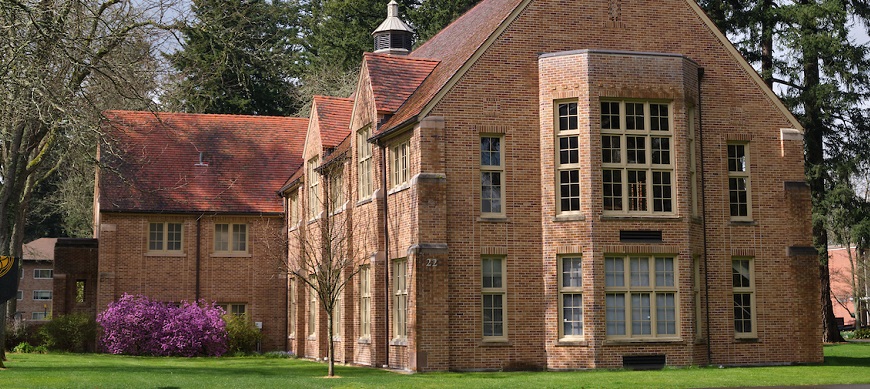Page 13 • (630 results in 0.021 seconds)
-
We acknowledge Te Atiawa as the Manu Whenua of Wellington/Lower Hutt where the society is administered and meets. We acknowledge ngā iwi Māori as the Tangata Whenua of Aotearoa.
2023 Annotation Social with JASNZ/AotearoaNorthanger Abbey (1798/1817) might be Jane Austen’s novel of youth, but it fully displays her acute social eye and narrative inventiveness: it is a defense of the novel, a parody of Gothic novels, and a bold satire of the patriarchal system and female education. It is also, at its core, a novel about reading–and about reading in community. So, it is a perfect novel for social annotation, which is what we are excited to do with the Jane Austen Society of
-
This display intends to highlight the Mortvedt Library’s graphic novel collection and their power of visual storytelling. Graphic novels are a compelling medium which combine elements of the visual arts and literature. This curated display focuses on stories related to social justice, resilience, and diverse…
: life narrative and contemporary comics PN6725.W48 2016 Black women in sequence : re-inking comics, graphic novels, and anime PN6726.D84 2010 Black comix : African American independent comics, art and culture PN6727.O74G65 2008 Jackie Ormes : the first African American woman cartoonist Electronic Book Black comics : politics of race and representation Videos Persepolis (viewable online) Academic Video Online Persepolis (DVD) DVD PN1997.P47 2008 Read Previous On Exhibit: Stalking Awareness Month
-

Professor of Hispanic and Latino Studies | Gender, Sexuality, and Race Studies | urdangga@plu.edu | 253-535-7240
Giovanna Urdangarain Professor of Hispanic and Latino Studies Phone: 253-535-7240 Email: urdangga@plu.edu Office Location: Xavier Hall - 111 Professional Education Ph.D., Indiana University, 2008 M.A., Hispanic Literature, Indiana University, 2001 B.A., Secondary Education Literature, Artigas Teacher Training Institute, Montevideo, Uruguay, 1991 Areas of Emphasis or Expertise Contemporary Latin American Narrative Southern Cone Dictatorial and Post-Dictatorial Narrative by Women Writers Memory
-

Professor of Hispanic and Latino Studies | Global & Cultural Studies | urdangga@plu.edu | 253-535-7240
Giovanna Urdangarain Professor of Hispanic and Latino Studies Phone: 253-535-7240 Email: urdangga@plu.edu Office Location: Xavier Hall - 111 Professional Education Ph.D., Indiana University, 2008 M.A., Hispanic Literature, Indiana University, 2001 B.A., Secondary Education Literature, Artigas Teacher Training Institute, Montevideo, Uruguay, 1991 Areas of Emphasis or Expertise Contemporary Latin American Narrative Southern Cone Dictatorial and Post-Dictatorial Narrative by Women Writers Memory
-

Professor of Hispanic and Latino Studies | Holocaust and Genocide Studies Programs | urdangga@plu.edu | 253-535-7240
Giovanna Urdangarain Professor of Hispanic and Latino Studies Phone: 253-535-7240 Email: urdangga@plu.edu Office Location: Xavier Hall - 111 Professional Education Ph.D., Indiana University, 2008 M.A., Hispanic Literature, Indiana University, 2001 B.A., Secondary Education Literature, Artigas Teacher Training Institute, Montevideo, Uruguay, 1991 Areas of Emphasis or Expertise Contemporary Latin American Narrative Southern Cone Dictatorial and Post-Dictatorial Narrative by Women Writers Memory
-

Professor of Hispanic and Latino Studies | Hispanic and Latino Studies | urdangga@plu.edu | 253-535-7240
Giovanna Urdangarain Professor of Hispanic and Latino Studies Phone: 253-535-7240 Email: urdangga@plu.edu Office Location: Xavier Hall - 111 Professional Education Ph.D., Indiana University, 2008 M.A., Hispanic Literature, Indiana University, 2001 B.A., Secondary Education Literature, Artigas Teacher Training Institute, Montevideo, Uruguay, 1991 Areas of Emphasis or Expertise Contemporary Latin American Narrative Southern Cone Dictatorial and Post-Dictatorial Narrative by Women Writers Memory
-
Explore this year’s World Philosophy Day theme, “Inclusive Societies, Sustainable Planet,” with a screening and discussion of Blue Gold: World Water Wars, a documentary film about the depletion and privatization of the world’s water supply and their consequences for the developing world.
Killer Drones - The Good, The Bad, and the Ugly (link) view page "The Ethics of Lethal Drone Warfare" - Dr. Bradley Strawser
-

By Michael Halvorson, ’85. Updated December 4, 2020 The Benson Program in Business and Economic History is pleased to announce the selection of the student-faculty research team for Summer 2020. The fellowship was awarded to the team of Ben Merrill and Prof. Ralph Flick from…
evaluated the proposal. “Artificial intelligence and human resources are a location where ethics, technology, and business intersect dramatically,” Halvorson said. “We are excited about the research that this innovative team is engaging in, and I look forward to their presentation during Spring 2021 when we can consider what they have discovered. I am grateful to the Benson Family Foundation for funding this innovative project.” Ben Merrill will be a senior at PLU in the Fall, majoring in Business
-
News for Pacific Lutheran University.
New History Course Examines Innovation and Ethics By Sarah Cornell-Maier ‘19. This Fall, Pacific Lutheran University is introducing a new history class that serves as a gateway to the Innovation Studies Program . Hist/Phil 248: Innovation, Ethics, and Society is a team-taught course that combines many different fields of study into one.… September 7, 2018 EthicshistoryInnovation studiesMichael HalvorsonSarah Cornell-Maier
-
All Religion majors complete a major research project. Recent capstone projects completed by Religion majors are listed below.
Perspectives on Religious Ethics Savannah Phelan, Building Bridges Through Ritual: Creating Space for Native Christian Identity within the Sweat Lodge Ashley Piehl, Religiously Whaling: The Ritual, Tradition, and Identity of the Makah Nicole Plastino, “There is No God Where I Am”: Thelema as a Case Study for Legitimizing Esoteric American Religiosity Connor Rowell, The Asymptotic Theology of Israel: Near Approaches to Monotheism in Israelite Thought Sarah Smith, Joseph and Aseneth: Redefining Jewish
Do you have any feedback for us? If so, feel free to use our Feedback Form.


